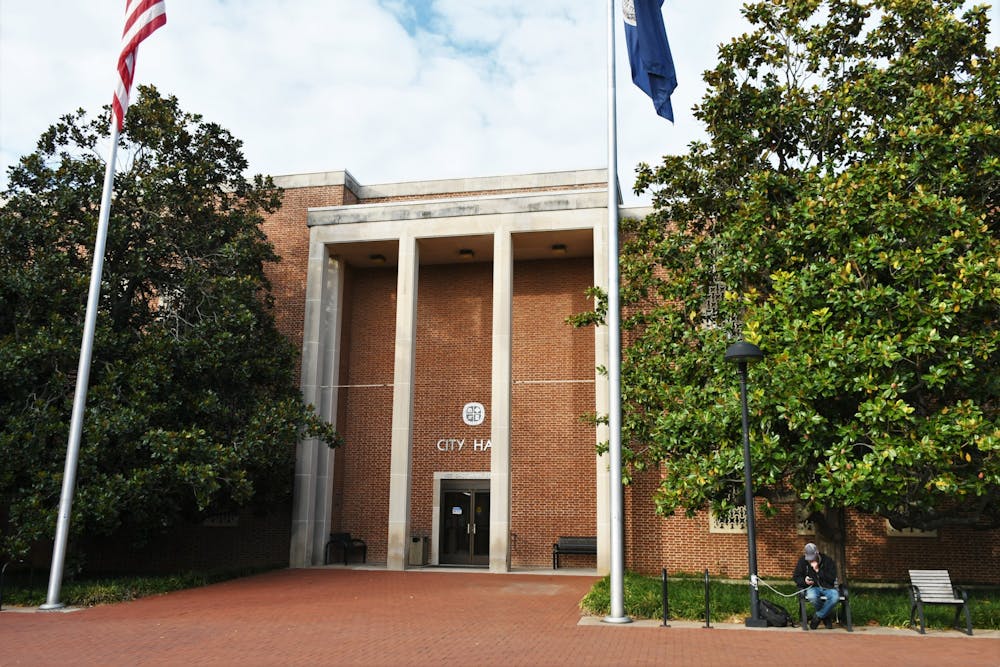Charlottesville’s new zoning ordinance — the official designations by which the City is broken into legal classifications of land use — will legalize increased housing density by allowing taller buildings with more units per square acre. City officials and advocates for affordable housing hope the changes will alleviate Charlottesville’s ongoing housing crisis.
Module one of Charlottesville’s zoning ordinance — concerning zoning districts, rules of measurements and the zoning map — is now available on the City’s website. Module two, concerning developmental standards such as landscaping, parking and lighting, is expected to be announced this week.
The City aims to increase affordable housing in Charlottesville through module one of the zoning ordinance by referring to the Affordable Housing Plan, which was endorsed in March of 2021 with the goal of addressing Charlottesville’s historical housing inequity.
The ordinance is informed by the City’s comprehensive plan, which is a guide for the City’s plans for community development. The third and final module is planned to be released during the week of April 3 and will focus on zoning administration. The City is required to rewrite their comprehensive plan every five years to adapt to a changing and growing Charlottesville. Charlottesville Plans Together — a community process that includes several parts — is responsible for rewriting the comprehensive plan.
Lyle Solla-Yates, chair of the Charlottesville Planning Commission and University lecturer, advises City Council on community development.
“Our [previous] zoning was very good at banning affordable housing,” Solla-Yates said. “It makes affordable housing illegal just because you have to have so much land — the benefits are unclear. It's not really a science. It's an art.”
Other changes to the first module of the ordinance include the simplification of zoning and legalizing small businesses in neighborhoods — which have been banned since 1929. Other changes include increasing the ease to comprehend development standards.
Solla-Yates first became involved in the process of rewriting the zoning ordinance as a Charlottesville homeowner. He purchased his home at the bottom of the housing crisis. He said his personal experience compelled him to help implement change to housing practices in Charlottesville.
He said that this time the zoning process is different because University students are involved, specifically those on Student Council.
“That almost never happens with city programs and processes,” Solla-Yates said. “It's very much two separate communities that don't talk. And I think having had that student involvement is vital because we are a city, but we are also a university community, and remembering that as we write policy is essential.”
James Freas, director of Neighborhood Development Services for the City of Charlottesville and responsible for staffing the planning commission, elaborated on the importance of this zoning project for advancing the community.
“[New zoning ordinances are] about more housing supply, more affordable housing and more types of housing to meet the needs of people with different stages in their life or different types of housing that people want to be able to live in,” Freas said. “The highlight is really important [in] creating opportunities.”
Another proposed method to reduce housing pressures in Charlottesville comes from University President Jim Ryan’s 2030 Strategic Plan, which includes a proposition to require second-years to live in University housing on Grounds. The goal of the requirement is to reduce the pressure on Charlottesville locals to find affordable housing, which partially results from the high number of students searching for off-Grounds housing. In the meantime, the new zoning ordinance will provide options for more affordable units for both students and community members.
“In terms of students attending university, this will likely lead to more student housing opportunities around the City around that area around the University,” Freas said. “Hopefully it will make the City an attractive place for students to then decide to stay and build their careers here and live in the City.”
Solla-Yates also said that the University could issue housing grants which students could use on the anticipated local affordable housing options created by the zoning ordinance.
The City hosted three community open houses during February for residents to learn more about the zoning process and share their feedback in-person. Community members are also invited to share comments through a Google Form or email.
The Charlottesville Plans Together website provides all updates on the zoning process, including event details for public forums. Community residents can continue to submit feedback as the other two zoning modules are released.







